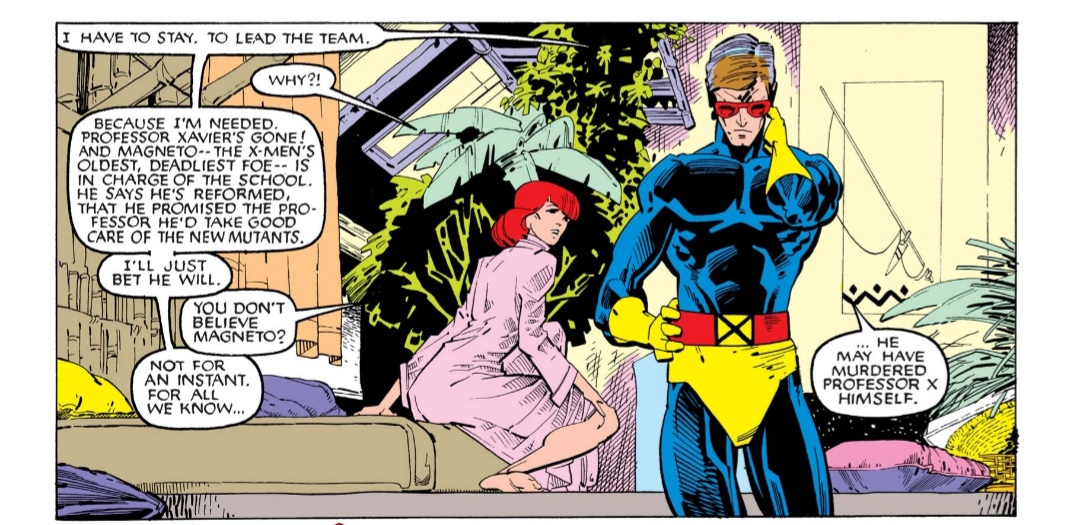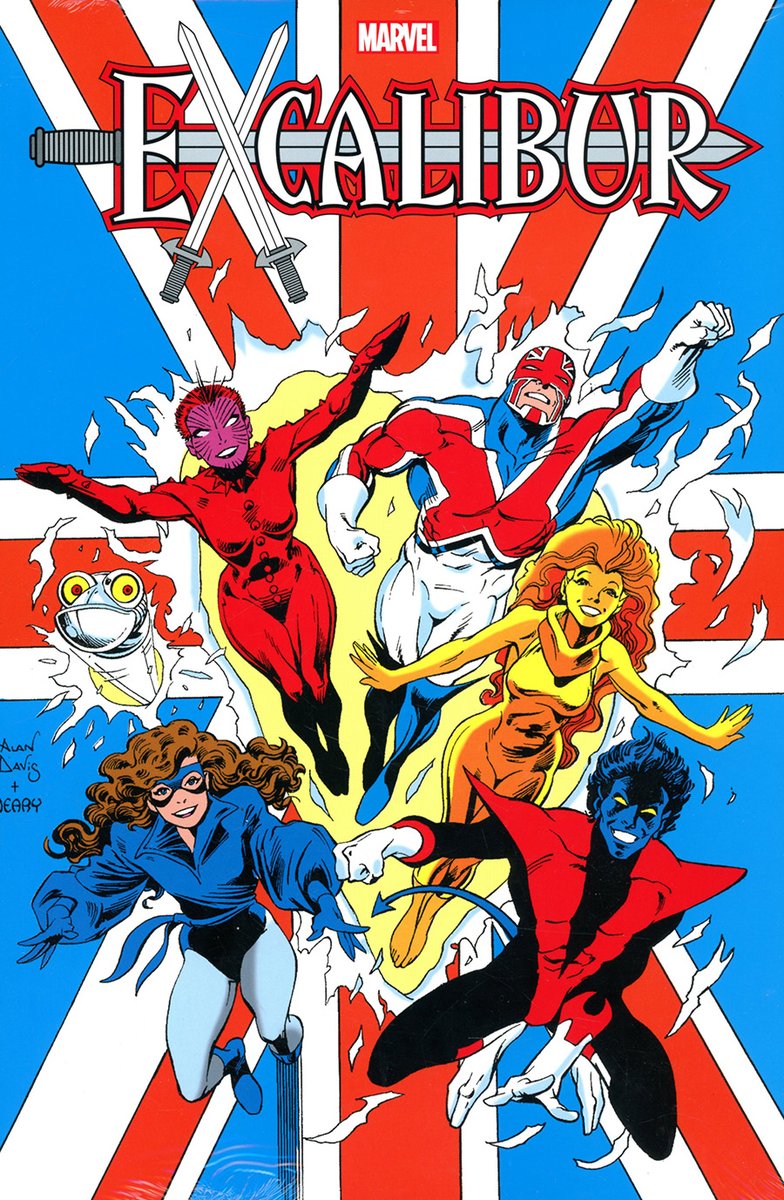
Chris Claremont laid the groundwork for Kitty Pryde and Kurt Wagner/Nightcrawler to develop one of the X-Men franchise’s most complex and sustained cross-gender friendships. 1/8 #xmen 

Kitty’s initial fear of Kurt compels intersectional explorations of how different mutations are perceived differently, even by other mutants, and inspires Kurt to reflect on his ingratiating approach to acceptance. 2/8 

Their relationship has several important turning points, including a buddy adventure in space (Uncanny X-Men #155-57), and a second space adventure in which Kitty (inadvertently) takes her first sentient life, to save Kurt (Uncanny #163). 3/8 

Kitty befriending Kurt becomes symbolic of her developing maturity and social consciousness; her iconic defenses of the mutant cause in Uncanny #210 and God Loves, Man Kills extend from her devotion to Kurt. Relevant to the former: Kitty is Jewish; Kurt is German. 4/8 

In the Claremont-penned tie-in Excalibur, Kitty propels Kurt’s own maturation. The series opens with Kitty admonishing Kurt’s senseless bravado after he is nearly impaled fighting robotic pirates. With the other X-Men seemingly dead, Kurt must grow up; for Kitty, he does. 5/8 

Their relationship is largely devoid of sexual tension. Kitty is one of the few X-women Kurt (a notorious flirt) never tries to romance, except, interestingly, in a comedic guise within a bedtime story Kitty tells to Illyana (“Kitty’s Fairy Tale,” Uncanny #153). 6/8 

In post-Claremont stories, Kitty and Kurt continue to function as emotional outlets for each other. On numerous occasions, their interactions inspire important confessions of vulnerability, often leading to character growth (and tearful hugs). 7/8 

Individually, each character has often been framed as a “soul” of the X-Men. But they arguably communicate the franchise theme even better through their friendship, their heroism emerging through a model of found family grounded in intersectional empathy. 8/8 

Today's TBT post composed by (e)visiting Claremont scholar, Dr. Anna Peppard, who (with Stephanie Burt @accommodatingly) actually just published a review of Claremont’s most recent Kitty/Kurt story comicsxf.com/2022/03/09/exc…
• • •
Missing some Tweet in this thread? You can try to
force a refresh





















